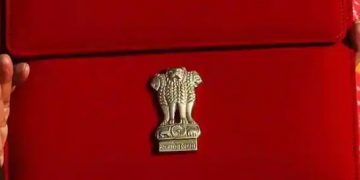Bhadrak: Odisha’s livestock sector, a key source of livelihood for many rural and landless families, is reeling under a severe shortage of animal aid centres and livestock inspectors. With more than 40% of posts lying vacant, many centres are either non-functional or overstretched, leaving farmers without timely veterinary care.
The state has 3,239 animal aid centres across 6,798 panchayats, in addition to 91 centres in government farms and other facilities.
In total, 3,330 centres are operating, but only 1,928 livestock inspectors are currently in service. Another 91 inspectors are posted in farms and related facilities.
This leaves 1,402 positions vacant, meaning around 42 per cent of centres do not have inspectors, according to Lalitendu Dalei, state secretary of the All-India Livestock Inspectors’ Professional Employees’ Association. In the Bhadrak district, 114 centres are functioning with only 66 inspectors.
Besides treatment, inspectors are engaged in implementing various government schemes such as the Chief Minister’s Kamadhenu Yojana, the Chief Minister’s Agriculture Enterprise Scheme, the National Livelihood Mission, livestock census, fodder cultivation, goat rearing, vaccination, artificial insemination, and insurance coverage.
As frontline workers, they provide immediate medical services at farmers’ doorsteps. In 2006, the state Directorate of Animal Husbandry and Veterinary Services announced plans to open one animal aid centre in every panchayat.
However, the plan remains on paper. With a change in government, expectations have risen that this long-delayed notification may finally be implemented.
Meanwhile, out of 667 posts in the veterinary technician (VT) cadre, 135 remain vacant, adding to the workload of inspectors. Many inspectors said they are under pressure, handling multiple responsibilities without adequate support.
Despite raising long-pending demands, they claim their concerns are often ignored as they are considered lower-level employees. The Odisha Non-Gazetted Veterinary Professionals’ Association has written several letters to the department, but inspectors said they rarely get a chance to discuss their issues directly with the director.
“At the grassroots, inspectors not only provide veterinary services but also implement government schemes. We are expected to meet departmental targets, handle fieldwork, and manage online reporting.
Unfortunately, the first six years of service are not counted in career progression. Our demands have been pending for years without resolution. We hope the new government will take steps to fulfil them,” said Dalei.
“After the recent interviews for inspector posts, some candidates are undergoing training.
Once they complete it, they will be appointed, which will help fill a portion of the vacancies.” Said Dr Hrushikesh Behera, chief district veterinary officer, Bhadrak.






































